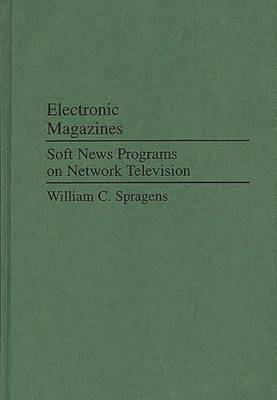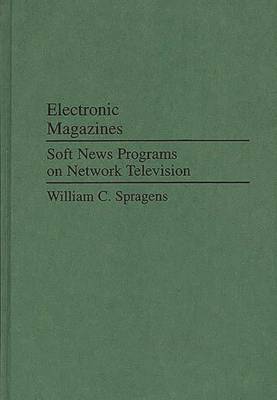
- Afhalen na 1 uur in een winkel met voorraad
- Gratis thuislevering in België vanaf € 30
- Ruim aanbod met 7 miljoen producten
- Afhalen na 1 uur in een winkel met voorraad
- Gratis thuislevering in België vanaf € 30
- Ruim aanbod met 7 miljoen producten
Zoeken
€ 127,45
+ 254 punten
Omschrijving
The traditional documentary programming of network television's bygone era has given way to the recent explosion of ratings-driven, personality-based news magazine programming. While ostensibly conforming to a high standard of public service, these magazines, as even some of their producers admit, must succumb to the forces of public appetite and profit maximization in order to be competitive.
This study examines this phenomenon of the electronic magazine and shows how the soft news programs affect the public's view of American politics and culture. Maintaining the distinction between the syndicated, tabloid-style programming (whose survival depends almost entirely on rating success) and the more responsibly conceived network magazine programming, Spragens provides a thorough content analysis of 60 Minutes, Dateline NBC, 20/20, and similar network series. His study traces the development of the television magazine genre from the original 60 Minutes through the current crop of news programs; it tracks the soft/hard or sensational/serious content dichotomy and its relation to ratings; and it draws conclusions about the trends in soft news programming and their impact on the American public.Specificaties
Betrokkenen
- Auteur(s):
- Uitgeverij:
Inhoud
- Aantal bladzijden:
- 168
- Taal:
- Engels
- Reeks:
Eigenschappen
- Productcode (EAN):
- 9780275941550
- Verschijningsdatum:
- 27/06/1995
- Uitvoering:
- Hardcover
- Formaat:
- Genaaid
- Afmetingen:
- 161 mm x 241 mm
- Gewicht:
- 480 g

Alleen bij Standaard Boekhandel
+ 254 punten op je klantenkaart van Standaard Boekhandel
Beoordelingen
We publiceren alleen reviews die voldoen aan de voorwaarden voor reviews. Bekijk onze voorwaarden voor reviews.











